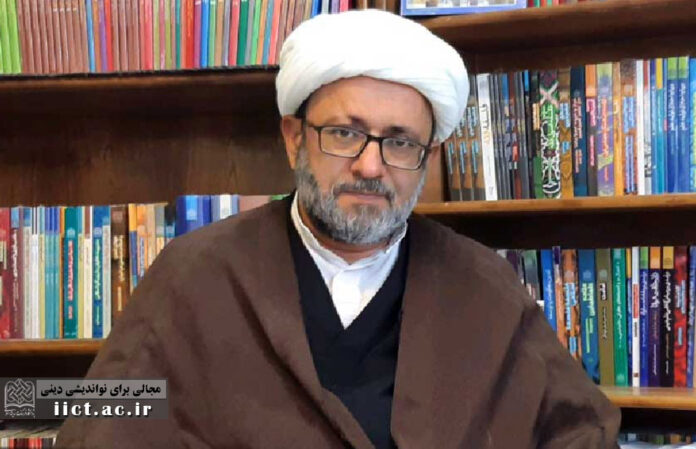In the light of implementing the Quranic culture of the Ahl al-Bayt, Imam Khomeini initiated a movement in the region and the world that restored the spiritual power of the oppressed. He demonstrated to the oppressed that one can rely on the omnipotent God against any power and make the impossible possible. A prime example of this is the issue of Palestine, where he revived their identity and renewed the belief in victory over the tyrannical Zionist regime.
The Charter of Resistance and Contemporary Heroism
Written by Hojatoleslam Mohammad Bagher Pouramini, Director of the Department of Islamic Theology and Modern Theology at IICT, published in the Pasdar-e Islam (Islam Guard) magazine
It is a strange world where the oppressor is proud of his power, dominating and shedding blood ruthlessly, killing children, and destroying homes. The oppressed, on the other hand, is overwhelmed by this oppression and not only fails to recognize their strengths but focuses on their weaknesses compared to the oppressor’s power. This perspective leads to a mistaken conclusion: spiritual defeat before any action against the oppressor, a result desired by every oppressor.
In the light of implementing the Quranic culture of the Ahl al-Bayt, Imam Khomeini initiated a movement in the region and the world that restored the spiritual power of the oppressed. He demonstrated to the oppressed that one can rely on the omnipotent God against any power and make the impossible possible. A prime example of this is the issue of Palestine, where he revived their identity and renewed the belief in victory over the tyrannical Zionist regime.
The Supreme Leader of the Revolution states:
“From the beginning of the Islamic movement, Imam Khomeini emphasized the issue of Palestine. He made predictions, provided guidance to Muslim nations and the Palestinian people. What Imam Khomeini predicted about the future of Palestine more than fifty years ago is gradually becoming a reality today. Imam Khomeini’s stance on the Palestine issue was clear: do not rely on peace negotiations. He believed that Palestinians should take action themselves, weaken the Zionist regime, and all nations, especially Muslim governments, should support the Palestinians. He always reiterated that if the nations step in, the Palestinians take action, and strive, the Zionist regime will be forced to retreat. This is happening today. The Palestinians, in the Al-Aqsa Flood operation, took action and placed the enemy in a corner with no escape or salvation.”
Belief in the omnipotent God removes the sense of weakness from the oppressed and encourages them to view and feel God’s power supporting their strength. It provides a life full of spiritual vitality and makes them experience the divine promise, “Indeed, Allah is with us.”
The resistance front, especially the oppressed people of Palestine, have experienced signs of this divine promise through the culture of resistance. In the “Al-Aqsa Flood” operation, they put the Zionist regime on a path that leads to its destruction.
The trust in the vast knowledge and power of God, as reflected in the prayers of the Ahl al-Bayt, turns weakness into strength. The oppressed believer, confident in God’s grace and promise, becomes resilient and steadfast, embodying a resistant force that moves forward.
The 14th prayer of Sahifa Sajjadiya is a charter of resistance and a life-giving prescription for the movement and heroism of any oppressed person in contemporary times:
“O You, to whom the complaints of the oppressed are not hidden;
O You, who needs no witness to the oppression suffered by the oppressed;
O You, whose help is near to the oppressed;
O You, whose assistance is distant from the oppressors.”
And this passage, which empowers the resistance front:
“O Allah, bless Muhammad and his family, and prevent the oppressor and my enemy from oppressing me with Your power. Break the edge of his oppression against me with Your power. Make him preoccupied with what he likes and mark him with incapacity against any resistant oppressed who rises against him.”




